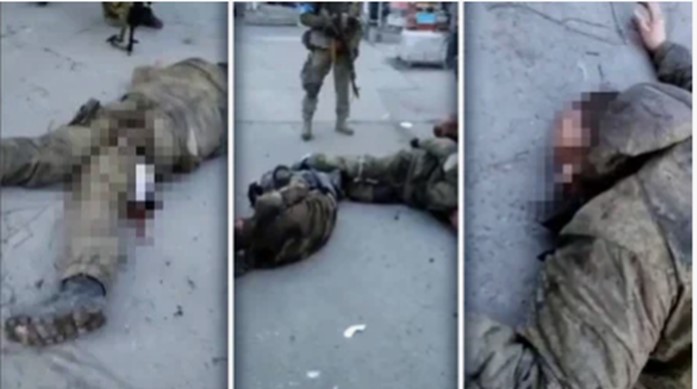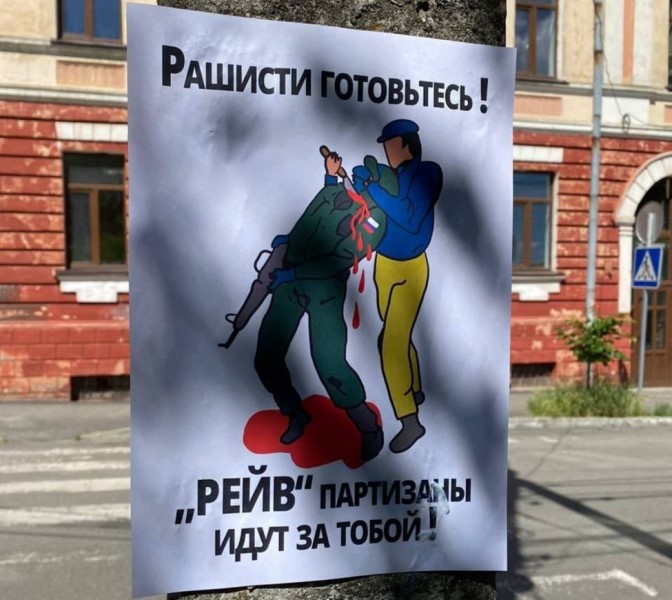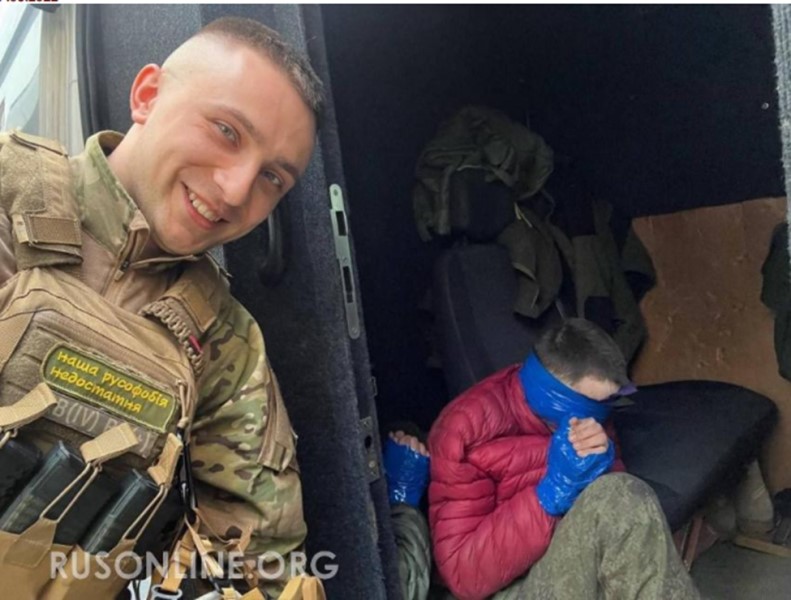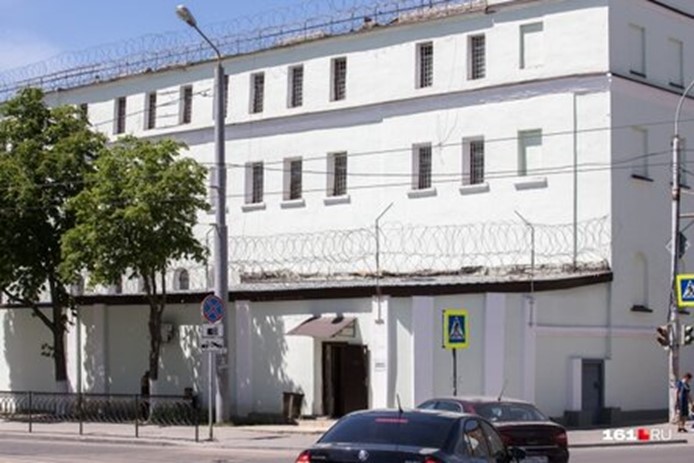Had Western leaders simply acknowledged the obvious truth about their role — that they see Russia as a geopolitical adversary and seek to exploit the war in Ukraine to weaken or even break that country — honest debate would have been possible. Instead, they and their corporate media allies did what they always do when marketing a new war: they draped it in fabricated morality tales about freedom-fighting and opposition to tyranny.
This narrative made claims about U.S. motives that should not have passed the laugh test, yet became articles of faith. The U.S. does not seek to advance its interests by sacrificing Ukraine to weaken Russia (a truth they began admitting in private: their goal is not to end the war but prolong it). Nor is it motivated by an opportunity to enrich a U.S. weapons sector which lost its primary market after the US. withdrawals from Iraq and Afghanistan, and which wields enormous power in Washington. Nor does the U.S. government, with its posture of Endless War, seek to justify the ever-increasing budget and power of the U.S. Security State and the sprawling Pentagon bureaucracy. Perish these thoughts.
Glenn Greenwald, June 12 2022 (abridged) 1
As Western corporate media work themselves into a frenzy that a court in Ukraine’s breakaway state of the Donetsk People’s Republic should have the temerity to hand down death sentences on two British mercenaries – contract killers – those same media, which for all their plurality of view on lesser matters always close ranks on matters vital to empire, ignore everything which does not serve the simplistic and self-serving narratives Glenn Greenwald speaks of.

.
Take war crimes: habitually played up – by Guardian no less than Mail – when the alleged perps are Russian; dependably and studiously ignored when the trail leads back through such as the Azov Battalion to the puppet regime in Kiev.
Prisoners of War — Ukrainian VS Russian. How do they fare?
A quick scan of newspaper headlines in London reveals outrage and horror over the sentencing of two British mercenaries held prisoner in the Donetsk People’s Republic.
The two Brits, Aiden Aslin and Sean Pinner, were on Tuesday sentenced to death by firing squad, along with a mercenary from Morocco, Saadoun Brahim, following a day-long trial in which they pleaded guilty to “acts aimed at seizing power by force” and “training to carry our terrorist activities.”
British Foreign Secretary Liz Truss, who previously made statements of support for volunteers from the UK who chose to fight alongside Ukrainians, was furious at the news.
“I utterly condemn the sentencing of Aiden Aslin and Shaun Pinner held by Russian proxies in eastern Ukraine,” Truss wrote on Twitter. She maintains that as prisoners of war, the men should be protected by Geneva Conventions.
The UK does not recognize the sovereignty of the break-away People’s Republics of Donetsk and Lugansk and Truss refers to them as “Russian proxies.” However, Russia has no legal authority over the prisoners, who were sentenced by DPR’s Supreme Court.
According to prosecutors, the convicts have a month in which to appeal the court decision. They can also ask for a pardon from the Prime Minister of DPR, Denis Pushilin. If a pardon is granted, the sentence will be commuted to life imprisonment or a sentence of 25 years.
Whether such a pardon, or even an exchange of prisoners, is possible is a matter of opinion. Vladimir Zharikhin, a political scientist and deputy director at the Institute for CIS Countries, is of the belief that an example will be made of the foreigners.
“Firstly, the very fact of such a verdict, no matter how events develop in the future, will greatly sober up those ‘gentlemen of fortune’ who are rushing to Ukraine to fight against the Russians,” Zharikhin said in an interview with the Russian publication Argumenti i Fakti (AIF), “And this is much more important than the fate of the mercenaries. In the end, the residents of Donbas, who really suffered all these years, have the right to make any decision: They can sentence, or they can exchange the perpetrators.”
Zharikhin added that foreign mercenaries do not fall under the protections of the Geneva Conventions. “In the case of foreigners,” he said, “we are talking about mercenarism, which, by the way, is criminally prosecuted in most countries of the world. And that’s why it’s such a harsh sentence.”
There’s no question that the sentence is harsh. But how does the treatment of these men, given the harshest possible sentence, stack up against the treatment of Russian POWs at the hands of the Armed Forces of Ukraine and its many nationalist militias?
Treatment of Russian Prisoners of War
You may have seen the Russian POWs who were shot in the legs by their captors. The shocking video of their torture and execution murder first surfaced on the internet in March, but was quickly censored and deleted by all the major social media companies. It can still be seen on Telegram in two parts (one, two), but be warned, the video depicts horrific violence. Here are some stills taken from the video:

The Russian fighters’ hands were tied behind their backs, then they were shot in the legs and left on the ground to bleed out. Their fingers were cut off and their eyes were poked out with a knife. The Ukrainian captors mocked one seriously wounded prisoner, giving him the choice of castration or having his throat cut. They put a plastic bag over another man’s head and then laughed and kicked him while he lay dying. There is also footage of burned corpses with their arms still tied behind their backs.
And that’s only the beginning of the atrocities. Footage of neo-Nazis torturing and mocking Russian prisoners of war appear frequently on the internet. You can find videos that show swastikas burned into the skin of Russian servicemen and civilians. In the basement of a school in Mariupol, where the neo-Nazis had a stronghold, the disfigured corpse of a girl was found without arms and with a swastika carved on her stomach. Next to her were Kalashnikov assault rifles and personal belongings of the AFU fighters.
One Russian serviceman was crucified and then burned alive. That video has since disappeared. But it was horrifyingly real, and a quick death by firing squad sounds far more humane in comparison.
The man in the above video, a fighter from the DPR, was tortured for days in Ukraine and left with deep lacerations on his head and arm. A doctor in Donetsk examines his wounds and observes that he was stabbed in the head repeatedly with a bayonet knife and that it’s a miracle he survived. The man then meets his torturer, now a prisoner in the DPR.
Dmitri Yevgen, a Ukrainian Marine with neo-Nazi tattoos on his arms and chest, admits to stabbing his prisoner six times. “On the second day,” he says, “the medics brought him out and said he was dead.”
That may be how his prisoner was able to escape, though the video does not say. However, the look in Yevgen’s eyes when the man he tortured walks into the room, tells us all we need to know.
“Before God, I apologize,” Yevgen says.
“Ne nado,” his victim replies, “Let’s not.”
Yevgen has yet to face trial, but his sentence is certain to be harsh. Life in prison, possibly execution.
Such atrocities carried out by Ukrainian forces have been extensively documented for years, before the war even began. There are countless videos of Russian-speaking civilians in Donbas being bombed, burned, tortured and otherwise killed, including women and children. Some of these horrors, such as when 40 people were burned alive in the Trade Union Building in Odessa during Maidan, were even covered by western media. But they are blips in the news which are quickly forgotten, whereas Russian troops are continually accused of atrocities so horrific as to be practically unimaginable.
However, Lyudmila Denisova, Ukraine’s former Parliamentary Commissioner for Human Rights, had no trouble imagining that Russian soldiers raped Ukrainian babies. A story she now admits she made up. The lies she told were so sordid that even the Ukrainian Parliament ousted her with a vote of no confidence.
Parliament member Pavlo Frolov accused Denisova of spreading misinformation that “only harmed Ukraine” referring to “the numerous details of ‘unnatural sexual offenses’ and child sexual abuses in the occupied territories, which were unsupported by evidence.”
Denisova admitted that her lies achieved the intended goal. “When, for example, I spoke in the Italian parliament at the Committee on International Affairs, I heard and saw such fatigue from Ukraine, you know? I talked about terrible things in order to somehow push them to make the decisions that Ukraine and the Ukrainian people need,” she said.
Major news outlets such as CNN and The Washington Post certainly posted her lies with enthusiasm. Retractions may have been published later, but the tales of Russian atrocities have already been burned into the western consciousness and are unlikely to be forgotten any time soon.
What westerners do not hear about are the atrocities committed by Ukrainian nationalists, which appear in Russian media on an almost daily basis.
In the above video, which was posted by the Russian Ministry of Defense on May 17th, a Ukrainian POW with closely cropped blonde hair tells of how he served alongside men heavily tattooed with swastikas and other Nazi symbols.
“These were guys who had been robbing and killing anyone they wanted for 8 years,” the unidentified POW says, “For them, to deliver a machine gun burst at a crowd is the same thing as you and I looking at each other.”
He goes on to describe what he saw first-hand.
“Severdonetsk was almost completely burned to the ground when there was not a single Russian fighter there. The AFU did it,” he says, admitting that the Armed Forces of Ukraine and its nationalist battalions strike civilians. He says he was afraid of the neo-Nazis, who often drink alcohol or snort drugs while chanting Nazi slogans, and that he didn’t dare try to stop them.
“They raped women, sometimes they did worse,” he says, “They burned a brand in the form of a swastika on the skin of the victims.”
In March, Russia’s Human Rights Commissioner, Tatyana Moskalkova, asked the International Red Cross to have their representatives visit Russian POWs in Ukraine and take note of their treatment.
“We have information that torture, inhuman ill-treatment is allowed against people,” she said, “We receive photos, videos from relatives of friends, and I call on the entire world community, all ombudsmen to do everything in the power of our institution, the entire world community to prevent violations of international norms and principles of respect for the rights of prisoners of war.”
The request appears to have fallen on deaf ears, as Red Cross investigators have yet to inform Moskalkova of any visits to Russian POWs. But Russia has not forgotten the brutality inflicted on its servicemen at the hands of their Ukrainian captors.
Russian investigators already know the location where the servicemen were shot in the legs. According to a lengthy article that was published in April by LIFE, the exact coordinates were deduced from landmarks shown in the video: A 3G tower, a pile of pallets and technical facilities. The soldiers were tortured and executed at a dairy in the village of Malaya Rogan, near Kharkov.
The names of the torturers are known as well, and at least two of them have been captured by Russian forces.
Russian media reported on March 29th that spetsnaz captured Serhiy Velichko and Konstantin Nemichev, the Ukrainian nationalists believed to have initiated the torture.
According to the LIFE article, the duo were commanders of Kharkov’s special “Kraken” unit of the “Azov” battalion. They were known to brag about their military exploits on social media. They posted a video of a massacre in Olkhova, the same village where the doomed Russian soldiers were captured.
The other torturers remain at large, but have been identified and put on wanted lists.
Though Ukrainian officials promised to punish those responsible, investigators from Russia did not wait around for that to happen. As Russian forces advance through Donbass, there is a chance that all participants in the torture will be detained and brought to trial.
Special “Camp” built in Ukraine for Russian prisoners

A poster in Melitopol warns “Rashisti” — a slur for Russians — that Ukrainian partisans will “come for them.”
As posters like the one above pop up in cities across Ukraine, the head of Ukraine’s Ministry of Justice, Denis Malyuska, admitted on Tuesday, June 7th, that Ukraine has built a “camp” for Russian prisoners of war. Given Ukraine’s nationalist leanings, you might wonder what kind of “camp” this is. But no photos of it appear to exist online.
“We have created a special camp for prisoners of war in the west of Ukraine,” Malyuska stated on Ukraine’s Rada TV channel, “which holds those prisoners of war for whom there is little expectation of an exchange.”
According to him, there are several places in Ukraine where Russian prisoners of war are being held.
“As for the prisoners of war who have just been captured or who are planned to be exchanged,” he said, “they are scattered among our facilities almost all over Ukraine.”

Russian POWs await transport. Leaning by the open door of their van is a Ukrainian soldier with a patch that says“Наша русофобiя недостатня” — “Our Russophobia is not enough.”
Housing for Ukrainian POWs
Many Ukrainian prisoners of war are taken to Donetsk People’s Republic. Others are taken to sites within Russia’s borders.
According to an article aptly titled “Where do Ukrainian Prisoners Live and How Expensive are They to Feed,” which was published in April by AIF, they appear to be doing better than their Russian counterparts in Ukrainian hands. Russian war correspondent Alexander Sladkov said that one captured AFU fighter costs the DPR about 105 rubles per day, which works out to about $1.77. The prisoners are fed porridge, salad, a quarter loaf of white bread, and tea.
While food for the prisoners is not lacking, guards are. According to officials in DPR, advertisements have been posted urgently recruiting prison staff. In some cases, Ukrainian captives are even allowed to work without any guards present.
“They are without shackles, without any torture,” Sladkov said, “They live in a large bright room. They calmly go out into the local area where they can smoke, sit in the air. First of all, I am talking about those people who surrendered earlier. They all live together. They are led by their own commanders. The commander is still in charge. They follow his commands. The officers, about 20 of them, carry out their duties. They are unit commanders, staff officers. They are doing the same job: cleaning, putting things in order… The Soldiers of the 53rd, 54th Brigade, Marines of the 36th Brigade of the Ukrainian Marine Corps are housed in the barracks next door, they go out in the same way, but they go out to work outside their housing area. They dig the ground, dip the apple trees, whitewash the curbs, and bring water to the compound. The foreman is in charge. That’s the decision of the administration. The convoy is impeccable.”
Those who identify as neo-Nazis or are believed to have tortured or killed prisoners or civilians, are not subject to the same leniency.
Whether they can be trusted to work or not, all Ukrainian POWs require housing. As of April, there were already more than 3,000 of them estimated in the DPR, and the housing shortage for them was acute. They were kept at first in civilian buildings, then later moved to detention centers, and eventually some were transported into Russia to be housed there.

Rostov “Central” where Ukrainian POWs are housed in Rostov, Russia / Photo: Evgeny Vdovin/AIF
At first, there was a resettlement of POWs in Rostov. According to local law enforcement agencies and human rights activists, Ukrainian military captured in Mariupol and Donbas were placed there. But Rostov’s Federal Penitentiary Service quickly ran out of beds in its facilities and many had to sleep on mattresses on the floor.
Irina Babicheva, a correspondent from 161.RU, says that some prisoners were moved to various pre-trial detention facilities including Rostov “Central,” where some of those who surrendered at Azovstal are believed to be held.
According to Sladkov, captive Ukrainians constantly ask what will happen to them, but those not accused of war crimes will have to wait until the end of the special military operation for their fate to be decided.
“The usual way to deal with prisoners is either an exchange, or labor, or just sitting in a POW camp until the end of hostilities,” military expert Boris Rozhin said, explaining that the prisoners will probably assist with the reconstruction of cities torn apart by the war, a labor which may last years.
Galina Balzamova, spokeswoman for the International Committee of the Red Cross in Russia, told 161.RU that her office is monitoring the treatment of Ukrainian POWs.
“We visit both Russian prisoners of war in Ukraine and Ukrainian prisoners of war in Russia,” Balzamova said, though one wonders whether this has been conveyed to Russia’s human rights commissioner.
The commissioner, Tatyana Moskalkova, also keeps an eye on Ukrainian POWs. Earlier in the year she flew to Sevastopol where some were being treated at a regional hospital. In fact, Russian servicemen wounded in combat were being treated on one floor while the Ukrainian POWs were treated on another.
“They asked me to contact their relatives, to inform them about their fate, to tell them that they were alive,” Moskalkova said, “Their conditions were good, everyone had a sleeping place with a blanket, bed linen, which was changed, four meals a day, literature, TV.”
Moskalkova told 161.RU that Russian servicemen “are given absolutely the same package of treatment, clothes, down to underwear, socks.”
Human rights activists in Russia are also concerned about Ukrainian POWs. Grigory Mikhnov-Voitenko, a former Orthodox priest who helped Ukrainians to flee Russia after the war began, says that both sides “behave sloppily” when it comes to prisoners of war. Mikhnov-Voitenko believes that plans for the detention of prisoners of war were not well-thought-out in advance, which is why prisons are overcrowded.
“It would seem right to me that there should be detailed reports,” Mikhnov-Voitenko said, “Where these people are, how many of them are suspected of having committed war crimes, what will happen in terms of what states are doing for their safety or for the safety of their country’s citizens. These are not just a disparate crowd of criminals who have been gathered in one place and barely know each other. These are coordinated military units. There have to be some answers, so that both society and relatives can be calm.”
One hopes that as many concerned parties will look out for Russian prisoners of war held captive in Ukraine.
*
About the author. Deborah Armstrong currently writes about geopolitics with an emphasis on Russia. She previously worked in local TV news in the United States where she won two regional Emmy Awards. In the early 1990’s, Deborah lived in the Soviet Union during its final days and worked as a television consultant at Leningrad Television.
Deborah warns that “my articles cause cognitive dissonance”.
* * *
- The quoted Greenwald passage on Ukraine follows a longer section, from which his piece takes its title – Joe Biden’s Submissive and Highly Revealing Embrace of Saudi Despots – on the bipartisan hypocrisy of Washington’s dealings with a client state, Saudi Arabia, at least as vital to its imperial interests in the middle east as Israel is.
